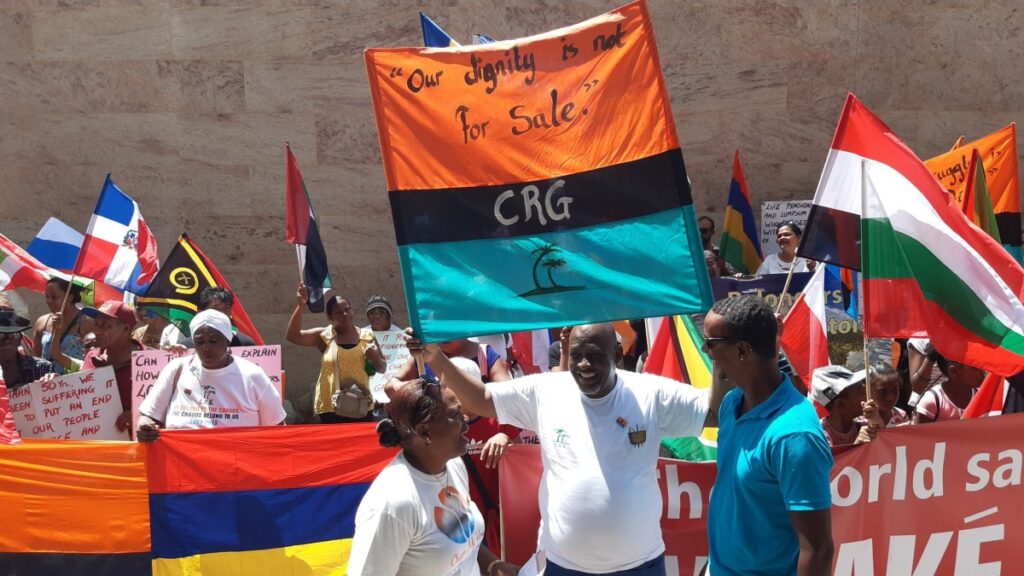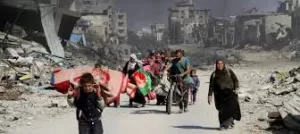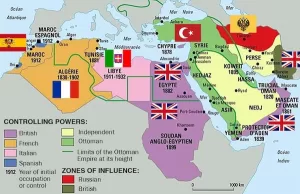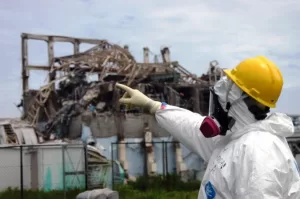“The object of the exercise is to get some rocks which will remain ours,” wrote Denis Greenhill, the head of the Colonial Office in 1966 after Britain agreed to provide the US with a military base in the Chagos Archipelago in the middle of the Indian Ocean. The Americans were promised that the islands where the base, Diego Garcia, was to be built would be uninhabited.
Greenhill, later Lord Greenhill of Harrow, was well aware that this was not the case at the time of writing, but cavalierly asserted that in future there would “be no indigenous population except seagulls who have not yet got a committee”.
In a tone of nauseating jollity, this senior British diplomat picks up on the seagull reference to explain what was going to happen to the 1,500 people or more who had lived and worked in Chagos for generations. “Unfortunately,” he wrote, “along with the Birds go some few Tarzans or Men Fridays whose origins are obscure, and who are being hopefully wished on to Mauritius etc.”
Forcibly removed in three stages
The British government was as bad as its word and within a year the inhabitants of Chagos were being forcibly removed in three stages. The first to lose their homes were those who had temporarily left the islands and were refused passage back on boats so they could not make the return journey. Then in 1969, those living on Diego Garcia were deported to other islands in the archipelago, the Seychelles and Mauritius. The dismissive “etc” in Greenhill’s memo turned out to include Gatwick Airport where some of the bewildered and impoverished deportees were dumped.
On 27 April 1973, the last of the islanders were ordered to leave immediately. Twenty-year-old Liseby Elyse, recently married to a blacksmith and pregnant, recalls how they were allowed to take almost nothing with them: “they told us to leave everything behind. We were not allowed to take our dogs. Each of us was allowed one trunk, which we filled with our most important items.” Crammed into a boat, they reached Mauritius after four days sailing and were landed on the quayside, having initially refused to disembark, with no money or anywhere to live. “Soon after we arrived I lost the child, my first,” Liseby said. “I suppose it was the trauma and the sadness.”
The abandoned dogs back in the Chagos posed a problem for the colonial authorities who tried to get rid of them by shooting and strychnine. “When this solution failed, the dogs were rounded up, locked into a copra-drying shed, gassed, then incinerated,” writes Philippe Sands in his just-published book The Last Colony: A Tale of Exile, Justice and Britain’s Colonial Legacy. An exceptionally powerful and intelligent book, it weaves together the story of the Chagos islanders struggling to return to their homeland with the complex political and legal developments that affected them.
A quest for justice to this day
One theme of the book is the actions of the International Criminal Court (ICC) in the Hague, and the positive role it ultimately played in the Chagos saga. Another is the tale of Liseby Elyse, whose life personifies “the wrongs done to her and other Chagossians, and their quest for justice which continues to this day”.
A further theme is the appalling behaviour of the British government at every stage. An old journalistic saying holds that “if you want a good story, imagine the worst thing a government could do and write that they have done it. The story will be denied within 24 hours and confirmed within the week.” Those who dismiss this advice as too cynical should read Sands’ book as it details the British government’s lies and perfidious manoeuvres over half a century.
When it came to the continuing exile of the people of Chagos, official mendacity became habitual and was accompanied by systematic evasiveness about the uses to which the Americans were putting their Diego Garcia base in what was still, after all, a British colony. After 9/11, Britain denied that Diego Garcia was being used for the “rendition” of prisoners for interrogation and torture. Eventually, it had to be admitted that “rendition” flights had taken place. The US Senate Committee on Intelligence concluded that the CIA may have established a “black site” detention and interrogation centre for”‘high-value suspects” on Diego Garcia, which may have happened with “the full concurrence” of the British government.
The government had hived off Chagos from Mauritius before the latter’s independence, renaming it the British Indian Ocean Territory (BIOT), but Britain’s legal right to sovereignty over the area was always shaky. A greenwashing initiative took place to hide the enforced depopulation of the islands. In keeping with the growing demands for conserving the oceans, the Foreign Secretary David Miliband announced in 2010 a vast Marine Protection Area around Chagos. Conservation organisations expressed delight that pristine waters would be preserved, but showed faint interest in the fate of the deportees.
The startling truth about what the Foreign Office was really up to was revealed in a secret cable from the US embassy in London to the State Department in Washington sent in May 2009 in which a British diplomat called Colin Roberts, director of overseas territories at the Foreign Office, tells the American diplomats about the true reasons for the marine protection area.
The cable is one of the great trove of documents published by Julian Assange and WikiLeaks in 2010, and relates how Roberts informed the Americans that “the former inhabitants [of Chagos] would find it difficult, if not impossible, to pursue their claim for resettlement on the islands if the entire Chagos Archipelago were a marine reserve.” He added cynically that the UK “environmental lobby is far more powerful than the Chagossians’ advocates.”
In the event, these cynical diplomatic calculations turned out to be wrong. Britain went on reiterating that the original inhabitants of Chagos could not return and Britain had full sovereignty over the area. But the International Criminal Court ruled in 2019 that Chagos was part of Mauritius, and Britain must end its illegal occupation. The UN General Assembly said that Britain must leave and was likewise ignored by the UK government.
A growing political price
But there was a growing political price for this as Britain had been unable to convince a single international judge of its right to the Chagos. Britain’s denunciations of other countries for illegally occupying territory not their own, such as Russia in Crimea, sounded peculiarly hypocritical in the light of what was increasingly seen as a scandalous injustice. Sands quotes himself telling Liseby Elyse that Britain, for all its rejection of the court ruling, would ultimately have to “recognise the legal and political realities.”
This may now be happening after the Foreign Secretary James Cleverly told the House of Commons on 3 November that Britain was opening negotiations with Mauritius on the question of sovereignty over the Chagos Archipelago with the aim “to resolve all outstanding issues, including those relating to the former inhabitants.” The cruel, dishonest and shameful story of Britain’s last colony may be coming to an end.
[Patrick Cockburn is an award-winning independent columnist who specialises in analysis of Iraq, Syria and wars in the Middle East. He is the author of ‘War in the Age of Trump’ (Verso). Courtesy: CounterPunch.]




